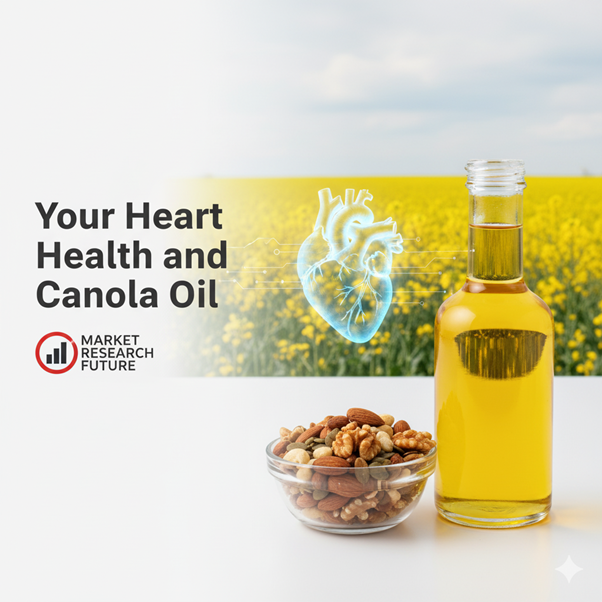Canola Oil: The Good, the Bad, and the Ugly
Your Heart Health and Canola Oil

When it comes to taking care of your heart, the food you put on your plate makes a world of difference. Doctors, nutritionists, and researchers all agree that diet is one of the most powerful tools for maintaining cardiovascular health. Among the many choices available in the kitchen, canola oil has steadily gained recognition as a heart-friendly option. With its balanced nutrient profile and versatility in cooking, it offers more than just convenience—it can actually support long-term wellness.
Why Heart Health Needs More Attention
Heart disease remains one of the leading causes of death globally, but the good news is that it’s largely preventable. Factors like exercise, stress management, and avoiding smoking play a role, but diet is perhaps the easiest and most immediate way to make a positive impact. Choosing the right cooking oil is a small step that can yield big results, and that’s where canola oil stands out.
The Nutritional Profile of Canola Oil
Canola oil is derived from the seeds of the canola plant, a member of the Brassica family. What makes it special is its low level of saturated fat and high levels of healthier fats. In fact, canola oil contains one of the lowest amounts of saturated fat compared to other common cooking oils. Instead, it is rich in monounsaturated fats, which are known to reduce bad cholesterol levels in the blood.
This reduction in LDL cholesterol is crucial because high cholesterol is a major risk factor for clogged arteries and heart disease. By substituting oils high in saturated fat with canola oil, you’re essentially giving your heart a lighter workload and reducing the risk of long-term complications.
The Role of Omega-3s and Omega-6s
One of the standout features of canola oil is its balance of omega-3 and omega-6 fatty acids. Omega-3s are essential fats that help reduce inflammation, support blood vessel health, and lower the risk of heart attacks. Many people turn to fish for omega-3s, but for those who prefer plant-based options, canola oil provides a reliable alternative.
At the same time, canola oil contains omega-6 fatty acids, which are also vital for the body when consumed in balance. This combination ensures that your cardiovascular system benefits from both protective and supportive nutrients without tipping the scale toward unhealthy fat intake.
Canola Oil and Blood Pressure
Another area where canola oil shines is in its potential effect on blood pressure. Some studies suggest that diets rich in monounsaturated fats, like those found in canola oil, can help regulate blood pressure levels. Stable blood pressure reduces strain on the heart and lowers the chances of stroke. While oil alone cannot manage hypertension, incorporating it as part of a balanced diet—alongside plenty of fruits, vegetables, and whole grains—can contribute to healthier readings over time.
Everyday Cooking Made Heart-Friendly
One of the practical benefits of canola oil is its versatility. It has a neutral taste and a relatively high smoke point, which means it can be used for sautéing, frying, baking, or simply drizzling over a salad. Unlike oils with strong flavors, canola oil blends seamlessly into dishes without overpowering them, making it easy to incorporate into everyday meals. This flexibility encourages consistent use, which in turn supports steady heart health benefits.
Beyond the Kitchen: A Sustainable Choice
Caring for your heart is about personal health, but canola oil also connects to a bigger picture. The cultivation of canola plants has made strides in sustainability, with farming practices designed to minimize environmental impact. Choosing canola oil not only benefits your cardiovascular system but also supports agricultural practices that are mindful of the planet. And as awareness grows, this dual benefit becomes another reason to make it a staple in the pantry.
A Simple Step Toward a Stronger Heart
Protecting your heart doesn’t always require drastic changes. Sometimes, it’s about small, thoughtful shifts that add up over time. Switching to canola oil is one of those steps—easy, practical, and impactful. By providing healthy fats, supporting cholesterol management, and promoting overall cardiovascular wellness, this unassuming oil proves to be more than just a cooking ingredient.
The next time you reach for oil in your kitchen, think of it as more than a way to prepare food. With canola oil, you’re choosing an option that nurtures your heart while keeping your meals delicious and wholesome. It’s a simple choice, but one that your future self—and your heart—will thank you for.

Leave a Comment